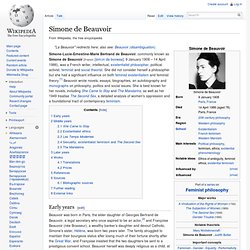

How to use ipiccy to edit your pictures. The Adaptive Function of Literature and the Other Arts. Massive Modularity vs. Cognitive Flexibility Evolutionists insist that genes constrain and direct human behavior. Cultural constructivists counter that culture, embodied in the arts, shapes human experience. Both these claims are true, but some evolutionists and some cultural constructivists have mistakenly regarded them as mutually exclusive (D. S. In the early phases of EP, theorists seeking to counter the concept of the mind as a “blank slate” committed themselves to the idea of “massive modularity,” the idea that the mind operates almost exclusively through dedicated bits of neural machinery adapted to solve specific practical problems in ancestral environments. In How the Mind Works (1997), Steven Pinker locates the arts within an EP conception of human cognitive evolution (524-43).
The distinguished sociobiologist Edward O. If the arts are steered by inborn rules of mental development, they are end products not just of conventional history but also of genetic evolution. Make Images, Videos and Web Stories for Free in Minutes. Make Images, Videos and Web Stories for Free in Minutes.
Jellybooks. A Book And A Hug. Go Book Yourself. A new way of choosing what book to read next. What Should I Read Next? Book recommendations from readers like you. YourNextRead: Book Recommendations (USA) Book Series Finder. Scholastic Book Wizard: Teachers, Find and Level Books for Your Classroom. Young Adult (YA) Books & Books for Teens. Meet your next favorite book. ReadingGroupGuides.com. Bookish.
Bookish. Just good books and the readers who love them - Riffle Books. WorldCat.org: The World's Largest Library Catalog. Identify & Explore Multicultural Picture Books. FictionDB - Your Guide to Fiction Books. YALSA Book Finder. KDL What's Next® Database. Our What's Next®: Books in Series database helps you search series fiction.

A series is two or more books linked by character(s), settings, or other common traits. e.g. Sue Grafton's "A is for Alibi", "B is for... " etc. or the "Star Wars" series Search for a Book The What's Next®: Books in Series database was developed and is maintained by the Kent District Library. We're looking for stories and feedback related to your experience with our What's Next® database. Kent District Library welcomes other libraries to link to this database. Literature Map - The Tourist Map of Literature. Simone de Beauvoir. Simone-Lucie-Ernestine-Marie Bertrand de Beauvoir, commonly known as Simone de Beauvoir (French: [simɔn də bovwaʁ]; 9 January 1908 – 14 April 1986), was a French writer, intellectual, existentialist philosopher, political activist, feminist and social theorist.

She did not consider herself a philosopher but she had a significant influence on both feminist existentialism and feminist theory.[1] Beauvoir wrote novels, essays, biographies, an autobiography and monographs on philosophy, politics and social issues. She is best known for her novels, including She Came to Stay and The Mandarins, as well as her 1949 treatise The Second Sex, a detailed analysis of women's oppression and a foundational tract of contemporary feminism. Early years[edit] Beauvoir was born in Paris, the elder daughter of Georges Bertrand de Beauvoir, a legal secretary who once aspired to be an actor,[2] and Françoise Beauvoir (née Brasseur), a wealthy banker’s daughter and devout Catholic.
Middle years[edit] The 100 most useful emailing phrases. Summary: A carefully chosen list of essential language for the beginning, body and ending of formal and informal English emails.

This is a carefully edited list of the most important English emailing phrases. You should make sure you have learnt and can use the phrases below before trying to learn and use more complex and rarer phrases. There is a similar list of the 100 most useful telephoning phrases here Useful phrases for opening emails Opening greeting to one person Dear Mr/ Ms/ Dr/ Professor + family name (= Dear Mr./ Ms./ Dr./ Prof + family name) Dear Alex Hi (John) Dear Sir or Madam Opening greeting to more than one person Dear all Hi (everyone/ guys) To: All faculty members/ To: New recruits/ To: All members/ To:… Useful email opening lines Opening line mentioning the last contact between you. The 20 Oldest Books of All Time. If you were asked to name an old book, you would probably name something by Homer.

Perhaps you might think of Beowulf. Someone religiously minded might mention Vedic texts, or perhaps the earliest writings found in the Hebrew Bible. While these literary classics are, indeed, old, a learned library science professional could probably tell you that the earliest books are from the ancient cultures of Mesopotamia and the Middle East: Sumerian, Akkadian and Egyptian. The earliest examples of literature that we have date from 2600 BC, during the early Bronze Age. This literature is interesting, and offers a look at the thought process of early civilization.
Sumerian No one is exactly sure where the Sumerians came from, but they may have come from Iran or India. Pin by Nessa on ⋆✬* tolkien art *✬⋆